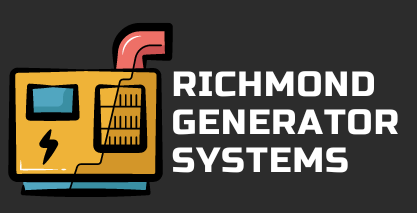
Whole House Generators in Manchester VA
A whole house generator is a robust system designed to provide uninterrupted power to your entire home during electrical outages. Unlike portable generators, which are typically used to power a few essential appliances, whole house generators are permanently installed and connected directly to your home's electrical system. This setup ensures that power is restored automatically and seamlessly whenever there is a disruption. There are several types of whole house generators, primarily distinguished by their fuel sources and operational methods:
- Standby Generators: These are the most common type of whole house generators. They are powered by natural gas or propane and are designed to start automatically when the power goes out. Standby generators are usually housed in an enclosure outside the home and can handle the entire electrical load of the house.
- Portable Generators: Although less common as a primary choice for whole house power, portable generators can be used for this purpose when necessary. They require manual setup and connection to the home’s electrical system, and they are typically fueled by gasoline.
- Inverter Generators: These generators are known for their quiet operation and efficiency. They are often used for smaller applications but can be adapted for whole house use in some situations. They generally run on gasoline and provide clean power suitable for sensitive electronics.
What We Offer
We specialize in providing top-notch whole house generator in Manchester, VA solutions tailored to meet your specific needs. Our services include:
- Residential Generators
- Commercial Generators
- Portable Generators
- Electric Generators
- Propane Generators
- Solar Generators
- Generator Repairs
- Generator Maintenance
- Generator Parts
How Do They Work?
Whole house generators operate by automatically detecting when there is a power outage. They are connected to your home's electrical panel and can instantly switch on to supply power. Here’s a brief overview of how they function:

We will get back to you as soon as possible.
Please try again later.
- Power Monitoring: The generator continuously monitors the electrical supply. When it detects a loss of power, it signals the generator to start.
- Engine Activation: The generator’s engine starts up and begins producing electricity.
- Transfer Switch: A transfer switch seamlessly disconnects your home from the grid and connects it to the generator.
- Power Supply: The generator supplies power to your home, ensuring all electrical systems and appliances continue to operate normally.
Fuel Sources
Whole house generators rely on different fuel sources depending on their design and the needs of the homeowner. The most common fuel sources are:
- Natural Gas: This is a popular choice due to its reliability and the convenience of having a constant supply. Natural gas generators are connected to your home’s gas line and do not require frequent refueling.
- Propane: Propane generators are versatile and can be used where natural gas is not available. They require a dedicated propane tank, which needs to be periodically refilled.
- Diesel: Diesel generators are known for their durability and ability to handle larger loads. They are often used in commercial settings but can be adapted for residential use.
- Gasoline: While not as common for whole house generators due to their storage and handling challenges, gasoline can be used in portable generators that might serve as a backup.
Installation Steps, Testing, and Commissioning
Installing a whole house generator involves several important steps to ensure it operates effectively:
- Site Assessment: Our team conducts a thorough evaluation of your property to determine the optimal location for the generator.
- Permits and Regulations: We handle all necessary permits and ensure compliance with local building codes and regulations.
- Installation: The generator is installed, including the transfer switch and any necessary connections to your home’s electrical system.
- Testing: After installation, we perform extensive testing to ensure the generator functions correctly and reliably under various conditions.
- Commissioning: The final step involves formal commissioning, where we provide you with instructions on how to operate the generator and schedule any follow-up services.
Regular Maintenance Tasks
To keep your whole house generator in optimal condition, regular maintenance is essential. This includes:
- Routine Inspections: Periodic checks to ensure all components are functioning correctly.
- Oil Changes: Regularly changing the engine oil to keep it running smoothly.
- Filter Replacements: Replacing air and fuel filters as needed.
- Battery Checks: Ensuring the battery is in good condition and charged.
- Testing: Performing monthly tests to verify that the generator starts up and operates as expected.
Diagnosing and Addressing Common Problems
Even with regular maintenance, issues can arise. Common problems and their solutions include:
- Generator Won’t Start: This could be due to fuel issues, battery problems, or faulty connections. Checking the fuel supply, battery, and connections can help resolve this issue.
- Power Fluctuations: Fluctuations in power can be caused by load imbalances or internal faults. Ensuring the load is evenly distributed and addressing any internal issues can fix this.
- Strange Noises: Unusual noises may indicate mechanical problems or loose parts. Regular inspections and maintenance help identify and fix such issues.
Considerations When Choosing a Whole House Generator
Selecting the right whole house generator involves considering several factors:
- Power Requirements: Assessing your home’s power needs to ensure the generator can handle the load.
- Fuel Type: Choosing between natural gas, propane, diesel, or gasoline based on availability and convenience.
- Budget: Balancing the cost of the generator and installation with your budget.
- Space: Ensuring there is adequate space for the generator and its components.
- Brand and Reliability: Opting for reputable brands known for their reliability and performance.
Importance of Having a Reliable Backup Power Source
Having a reliable backup power source is crucial for several reasons:
- Emergency Situations: It ensures that you have power during emergencies, keeping essential systems like heating, cooling, and refrigeration operational.
- Preventing Disruptions: It prevents disruptions to daily life and protects against losses related to food spoilage or damage to electronics.
- Safety and Comfort: It provides peace of mind knowing that you and your family will remain safe and comfortable during power outages.
Common FAQs
Q: How often should I run my generator?
A: It’s recommended to run your generator monthly to ensure it remains in good working condition.
Q: How long can a whole house generator run continuously?
A: The runtime depends on the fuel type and capacity. Generators can run for several hours to days, depending on their fuel source and load.
Q: Do I need to be home for the generator to operate?
A: No, most whole house generators are automated and can operate without requiring your presence.
Q: Can I install a generator myself?
A: It’s best to have a professional install your generator to ensure proper setup and compliance with local codes.
If you’re considering a whole house generator for your home in Manchester, VA, or need service for an existing unit, contact us today. Our experienced team is ready to assist you with installation, maintenance, and repairs to ensure that your home remains powered during any outage. Reach out to us to schedule a consultation or to learn more about our services.
Let's Connect!
Looking for reliable power solutions? Look no further than us! Our expert team is here to help you understand how whole house generators work and why they're essential. Don't get caught in the dark! Check out our buyer's guide and discover the reasons for the loss of power. Contact us today for a consultation!